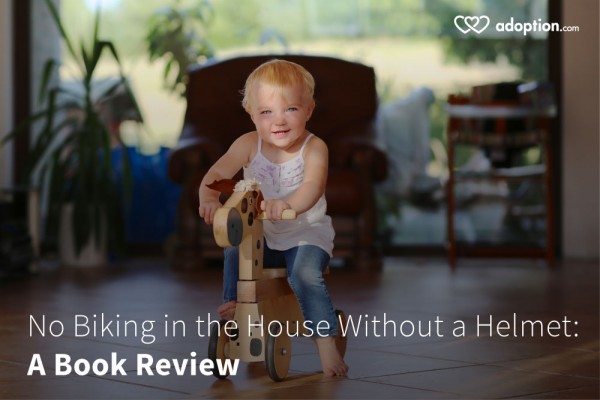We had recently brought home our first adopted son and I was struggling. I was struggling to navigate this new territory of a brand new 3 ½ year old son, nearly constant raging, and general upheaval. This wasn’t how I pictured how this adoption would play out. And then I happened upon an essay by Melissa Fay Greene, “Post-Adoption Panic,” which appeared in the book, A Love Like No Other: Stories from Adoptive Parents. In it, Ms. Greene recounts how one day, after bringing her first adopted son home, she found herself weeping in the laundry room over having to do his sheets. It is a poignant essay and one that spoke to me like nothing else had. I realized that I wasn’t the only one to experience these feelings towards my new child. Melissa got over it, I will, too!
So powerful was this feeling of connection and thankfulness towards Ms. Greene that when I discovered that she would be in my town signing her newest book, There Is No Me Without You, I rounded up a friend and made sure to go. Afterwards, lugging my copy of A Love Like No Other along with me, I had the chance to personally thank her for her writing and for her vicarious help. She graciously signed both her new book and the book I had brought with me and I left happy.
All of this is a prelude to explain why, when Adoption.com wanted a review of Melissa Fay Greene’s newest book, No Biking in the House Without a Helmet, I jumped at the chance. This is Ms. Greene’s memoir of raising her 9 children. She gave birth to four, and then she and her husband adopted a boy from Bulgaria (after which she found herself crying in the laundry room). That adoption was followed by a daughter from Ethiopia and then another son, also from Ethiopia. At this point, they believed their family was complete. That is until one of their older sons, who was volunteering at various orphanages in Ethiopia, called his parents one night to tell them about a pair of brothers that they had to adopt. To everyone’s amazement, his parents agreed. These two boys make their eighth and ninth children.
Ms. Greene’s book is funny, sad, thoughtful, and gut-wrenching by turns. She does not try to convey a perfect family, but a real one. A family full of love and all the other complicated emotions that arise when people live together and care about one another. She describes difficult family issues as well as happy ones and is open about her own emotions. One of the things I appreciated most about how Ms. Greene compiles these stories is that it isn’t just about her adopted children or her birth children or about the adoption process or the process of living in an adoptive family. It is all these things, but none takes center stage. Just like in every other adoptive family, the adoptions and the children which result from these adoptions all become mixed-up together with everyone and everything which was already there. The book isn’t all about one thing, but then neither is her family.
The book is more poignant today than it was when it was published in 2011. In October 2014, Ms. Greene’s son, Sol, committed suicide. Sol was the Greene’s second Ethiopian adoption. As I was reading the book, I knew that one of her sons had died, but was unsure which one. When I looked up the information, I felt stunned, though I didn’t know him apart from his mother’s writing. Ms. Greene had written about her children with such grace and love that I felt as though I knew him a little bit and it hurt to know he was no longer on this earth.
Sol’s suicide is a hard epilogue to the story. By all accounts, this was unexpected and there was certainly no hint of it in Ms. Greene’s writing about her son. But this, too, is part of the story of adoption. A study published by the journal, Pediatrics, concludes with the line: “The odds for reported suicide attempt are elevated in individuals who are adopted relative to those who are not adopted.” It is not how we want stories to end.
Ultimately, this book is a testament to the love of family. That family can work even if not everyone is biologically related or looks the same or if there are two or five or nine children. It is love that makes the family and allows its members to enjoy the good times and to weather the hard ones.
My condolences go out to Ms. Greene and her family at the loss of their son and brother. Thank you for sharing his life and your family with us.


